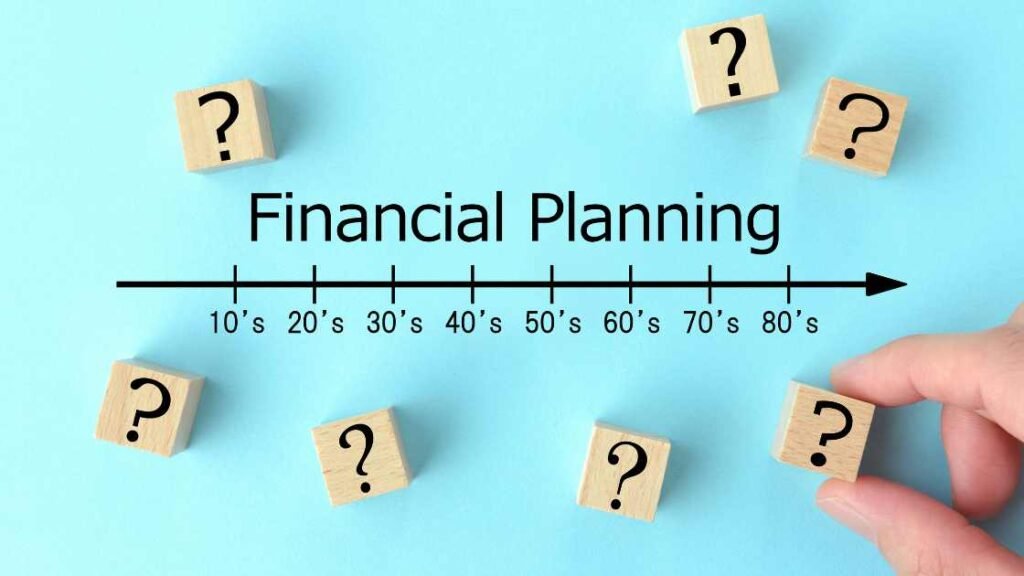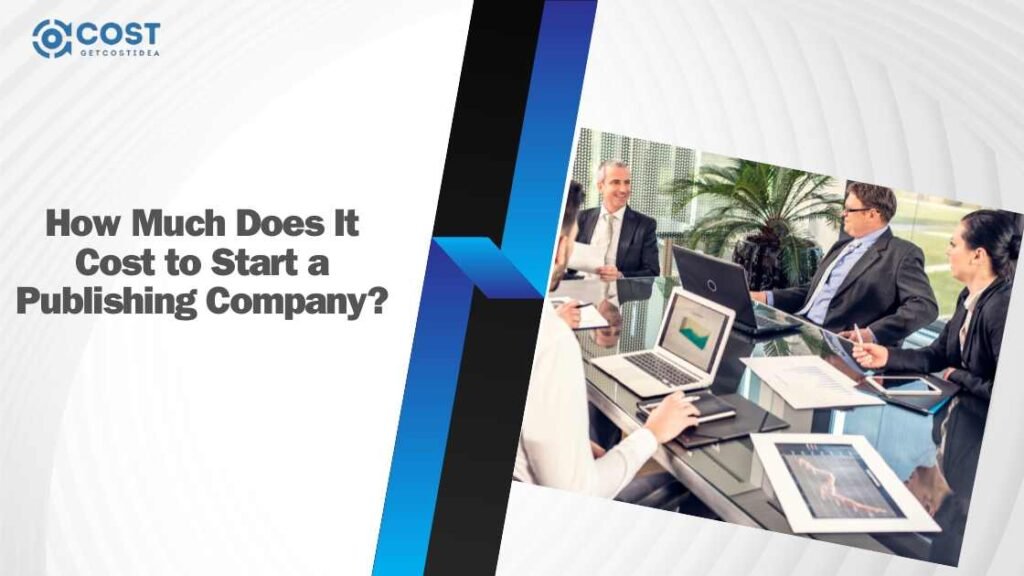Starting a publishing company can cost anywhere from a few thousand dollars to over $30,000. The variance hinges on factors like scale, location, and services offered.
Launching a publishing company is an ambitious endeavor that attracts literary enthusiasts and entrepreneurs alike. The initial investment includes essential components such as business registration, website development, and purchasing ISBNs for your books. (U.S. note: Bowker currently lists ISBNs at $125 for 1, $295 for 10, and $575 for 100; optional barcodes are $25 each.)
Smaller, home-based publishing businesses may minimize costs by focusing on digital publications and print-on-demand services.
Starting on the journey to start a publishing company is an exciting endeavor. One of the key considerations you need to address is determining the financial investment required for this venture.

How Much Does It Cost to Start a Publishing Company depends on many factors. If you decide to establish a physical office, hire staff, and invest in marketing, these choices will significantly contribute to the startup expenses.
Crafting a good plan for your business is important. It should show the steps and costs tailored to how you publish.
Plan well and invest wisely to make your company a lively place for different voices and stories. Make sure it grows into a business that makes money.
The Dream Of Starting A Publishing Company
The dream of starting a publishing company whispers to many aspiring entrepreneurs and authors. This dream blends a passion for literature with the allure of crafting a legacy in the literary world. It sparks visions of finding new voices and sharing them with eager readers.
For some, it represents a rebellion against the gatekeepers of traditional publishing. For others, it’s a business venture ripe for exploration.
Motivations Behind Launching Your Press
Launching a press stems from various deep-seated motivations. Let’s Inspect some:
- Independence: You make the big decisions. Your vision leads the way.
- Discovery: Unearthing hidden literary gems gives immense satisfaction.
- Innovation: The freedom to experiment with genres and formats is yours.
- Control: You dictate the publishing process, from manuscript to marketing.
- Financial Rewards: Success may yield significant financial benefits.
Success Stories In Independent Publishing
Independent publishing has its tales of triumph. These success stories inspire:
| Company | Founded By | Notable Achievement |
|---|---|---|
| Graywolf Press | Scott Walker | Pulitzer Prize-winning titles |
| Valiant Comics / Valiant | Jim Shooter and Steven Massarsky | Superhero comics empire |
| Sourcebooks | Dominique Raccah | Innovative digital marketing |
These companies began with dreams like yours. They highlight the potential when dreams meet determination.
Initial Investment Costs

The dream of starting a publishing company excites many aspiring entrepreneurs. Yet, one must consider the initial investment costs. These costs prepare the foundation for a successful venture. The financial implications early on are essential.
From registering your business to setting up your physical space, each step comes with a price tag. Below, examine detailed insights into the expenses you might incur during these preliminary stages.
Business Registration And Legal Fees
Stepping into the publishing industry starts with legal formalities. You will need to register your company. This process often involves many fees:
- Registration fees: A cost payable to state authorities for company formation.
- Legal fees: Expenses to hire an attorney for ensuring legal compliance.
Additional expenses might include trademark registration and obtaining an ISBN prefix. These safeguard your brand and publications. ISBN prices and issuing agencies vary by country (the U.S. uses Bowker; other countries such as Canada issue ISBNs at no charge).
Infrastructure And Office Space Considerations

Infrastructure forms the backbone of your publishing company. Consider whether you’ll start from home or require an office:
- Home setup: Minimal costs for a home office typically include a computer, printer, and software subscriptions.
- Rented office space: Renting an office necessitates a higher budget. This covers the lease, utilities, and office furniture.
In both scenarios, investment in technology and software remains vital for operations. Quality computers, design and editing software, and an online presence are non-negotiable.
Operational Expenses To Anticipate
Many dream of starting a publishing company without knowing the costs. A clear budget is essential. Know what to expect for operational expenses. Money spent right leads to success. Here’s a look at the essential outgoings you will face.
Editing, Design, And Production Services
Quality content requires professional touches.
- Editing costs can vary. Editors charge per word or hour. Estimate carefully.
- Great design grabs readers. Cover design and layout services are investments.
- Production includes printing and formatting. Digital or print affects costs.
Marketing And Distribution Channels
Books need readers. Reach is key.
- Online marketing drives visibility. Budget for ads and social media.
- For distribution, consider digital platforms. They are usually cost-effective.
- Physical books mean shipping expenses. Online orders lessen overheads.
Staffing And Freelancer Budgeting
Your team is your backbone. Knowledgeable staff brings growth.
- Decide between hiring staff or freelancers. Each has benefits and costs.
- Freelancers provide specialized skills. They save on long-term costs.
- Staff bring stability. Ensure salaries fit the budget.
Technology And Software Needs
When diving into the publishing industry, it’s crucial to equip your venture with the right tech tools. Today’s market demands advanced software to handle everything from layout design to distribution. These costs can vary but are essential for efficiency and professionalism in a publishing company.
Publishing Software And Tools
Industry-grade software ensures high-quality outputs for your publishing needs. Such tools help with typesetting, layout, and formatting of your publications.
- Adobe InDesign: A top choice for creating professional layouts. Subscription (Single App plan); check Adobe for current U.S. pricing.
- Scrivener: Ideal for organizing and managing writing projects. Standard license (macOS/Windows); see Literature & Latte for current pricing.
- QuarkXPress: Useful for intricate design projects. Subscription or perpetual license options; see Quark for current pricing.
Pricing for these tools can range from a one-time purchase to a monthly subscription model.
| Software | Cost Estimate |
|---|---|
| Adobe InDesign | Subscription (see Adobe for current pricing) |
| Scrivener | Standard license (see Literature & Latte for current pricing) |
| QuarkXPress | Subscription/perpetual (see Quark for current pricing) |
You may also consider free open-source alternatives, like Scribus, to cut down initial expenses.
Website Development And Maintenance
A strong online presence starts with a robust website. It acts as your digital storefront.
- A basic website can cost as little as $100, using platforms like WordPress.
- For custom designs, prices can start from $1000 and go up.
- Regular maintenance such as hosting, domain renewal, and security updates are ongoing costs.
Subscription services for website management may charge:
| Service | Monthly Cost |
|---|---|
| Hosting | $5-$25 |
| Domain Renewal | $10-$50/year |
| Security | $100-$500/year |
Remember to align your technology use with your publishing company’s specific needs to avoid unnecessary costs.
Ongoing Costs And Revenue Streams
Starting on the exciting journey of starting a publishing company that involves regular costs and potential income. After the initial setup phase, ongoing expenses and revenue channels become the pulse of your business’s financial health. Financial savvy ensures a sustainable venture.
Calculating Royalties And Profit Margins
Key to forecasting the profitability of a publishing company is knowing how to calculate royalties and define profit margins. Publishers generally offer authors a percentage of each book’s sale price—known as royalties. These values vary but are typically between 5-15% for printed books and up to 25% for ebooks.
| Book Type | Royalty Range | Profit Margin |
|---|---|---|
| Printed Books | 5-15% | Variable |
| eBooks | Up to 25% |
To manage profit margins effectively, publishers deduct the cost of sales from the revenue to determine the net profits. Costs can include printing, marketing, distribution, and other operational expenses.
Diversification Of Income In Publishing
Diversifying income streams solidifies a publishing company’s financial foundation. Examples include:
- Selling subsidiary rights, such as audiobooks, translations, and film adaptations.
- Direct sales through your website can grant higher margins.
- Merchandising offers a creative avenue to further profit from your content.
- Investing in digital products, like online courses related to your books’ genres.
Each revenue path requires analysis and strategic planning. This ensures alignment with your company’s goals and the markets you serve. Balancing up-front costs with predictive revenue models guides decision-making.
Maintaining a close eye on these financial aspects paves the way for a prosperous publishing company.
Financial Planning And Funding Options

Starting a publishing company is an exciting venture. A solid plan for finances is key. Money matters need clear understanding and smart moves.
Several funding options exist. We will Inspect what to consider as you start this journey.
Budgeting For The First Year
Set a realistic budget before you start. A budget guides your spending. It helps you track where every dollar goes. Expectations must align with your financial capacity. Consider all costs big and small.
Key budget items include:
- Legal costs: For business registration and copyright dealings.
- Production costs: Includes printing, designing, and typesetting.
- Marketing: To promote your books and brand.
- Operational expenses: Rent, utilities, and salary payments.
| Item | Estimated Cost |
|---|---|
| Legal Establishment | $1,000 – $5,000 |
| Initial Inventory | $5,000 – $10,000 |
| Marketing | $2,000 – $10,000 |
| Operating Costs | $2,000 – $5,000 |
Keep a buffer for unexpected expenses.
Seeking Investments And Applying For Grants
Funds sometimes need a Improve beyond the budget. This can come from investors or grants. Investors can offer capital for equity. They become part of your business growth.
Grants are a different kind of funding. They do not need repayment. Many organizations support publishing companies through grants.
Steps to attract funding:
- Prepare an impressive business plan.
- Showcase potential growth and returns.
- Network and pitch to potential investors.
- Apply for grants tailored to the publishing industry.
Remember, persistence is key when seeking funds.
Cost-cutting Strategies And Efficiency Tips
Starting a publishing company can be exciting. Yet, costs can also feel overwhelming. Fret not! There are ways to keep expenses down while not cutting corners on quality. Let’s Inspect cost-cutting strategies and efficiency tips in the publishing industry.
Leveraging Digital Publishing Trends
The rise of e-books and digital content offers significant savings for new publishers. Here’s how you can get on board:
- Go Paperless: Avoid print costs by publishing eBooks.
- Use Social Media: Market on platforms like Facebook and Instagram for free.
- On-Demand Printing: Print physical copies only as needed to reduce waste.
Networking And Partnerships To Reduce Expenses
Building relationships in the business can lead to shared success and cost savings:
- Barter Services: Exchange services with other companies instead of paying.
- Partner with Editors: Negotiate better rates with freelance editors by offering regular work.
- Join Publishing Groups: Gain access to resources and discounts through memberships.
Frequently Asked Questions On How Much Does It Cost To Start A Publishing Company
Is It Expensive To Start A Publishing Company?
Starting a publishing company can be relatively low-cost, especially with digital publishing. Initial expenses may include business registration, website setup, and marketing costs. Costs increase with print operations and staff salaries.
How Do I Start My Own Publishing Company?
To start a publishing company, choose a niche, register your business, obtain an ISBN and barcode, set up distribution channels, and market your titles effectively.
Is Publishing Business Profitable?
Publishing businesses can be profitable with the right strategy, niche market targeting, and cost-effective operations. Success hinges on adapting to digital trends and diversifying income streams.
Is It Difficult To Start A Publishing Company?
Starting a publishing company can be challenging due to the required capital, knowledge of the industry, and strong marketing strategies. Nonetheless, with the right planning and dedication, it is achievable.
How Much Does It Cost To Start A Publication?
The cost to start a publication can vary widely depending on factors such as format, frequency, and distribution. Generally, it can range from a few hundred to several thousand dollars, encompassing expenses for content creation, printing, design, and initial marketing efforts.
Conclusion
Starting a publishing company can be an exciting venture. Costs vary based on factors like scale, location, and services offered. Plan your budget to cover essentials like licensing, staff, and marketing. With thorough preparation, your publishing dreams can turn into profitable realities.
Embrace the challenge and start your story!



2 thoughts on “How Much Does It Cost to Start a Publishing Company?”
Pingback: How Much Does A Neck Lift Cost? 2024
Pingback: How Much Does It Cost To Build A Yurt In 2024?